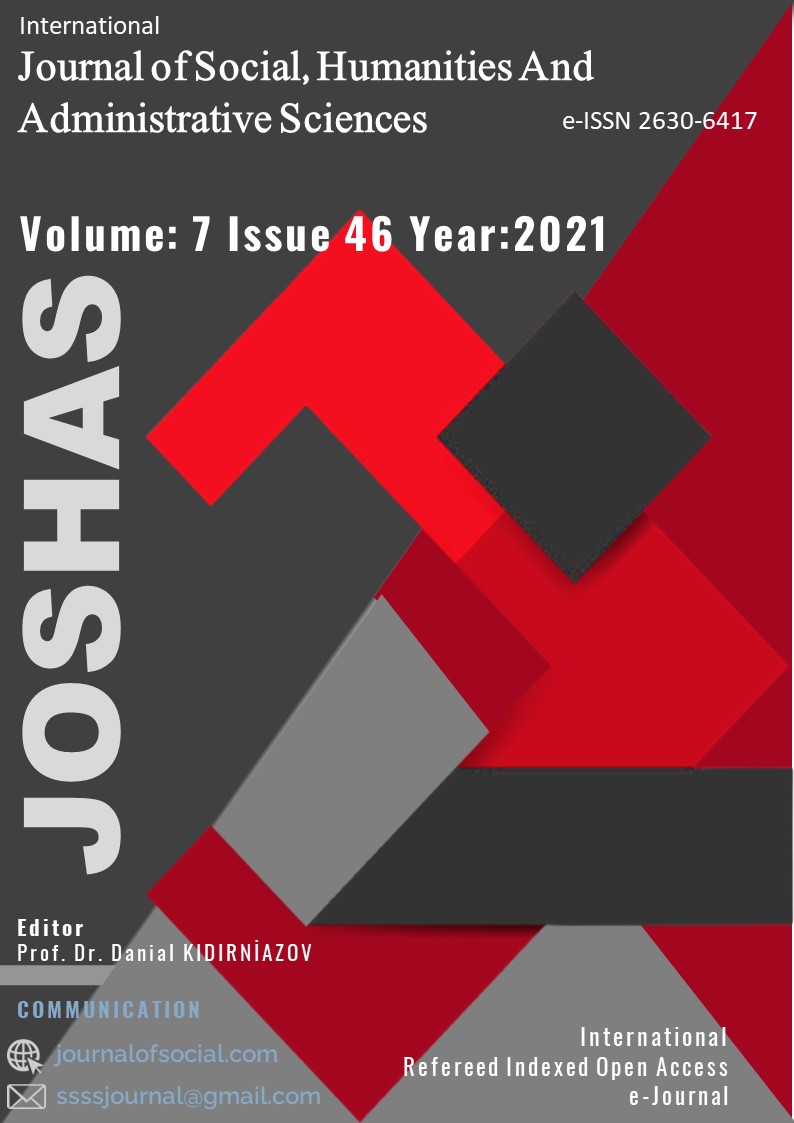Author :
Abstract
Arap Edebiyatı’nın başlangıç noktası Mısır’da romanın gelişimi, diğer tüm edebiyatlarda olduğu gibi temasa geçilen bir üst uygarlığa öykünmeyle başlamış, dönemin moda akımları ülkenin kendi gerçekliğiyle bütünleşerek edebiyata yön vermiştir. Gelişimi engelleyip hızlandıran dinî, kültürel ve siyasî miras yanında ulusların kendi edebi geçmişi bir diğer değişkendir. Mısır’da muazzam bir dil hazinesi üzerinde yükselen yeni edebiyat söz konusu şartlarda filizlenirken ilk ürünlerden itibaren meydana gelen eserler süreç hakkında bilgi verdiği gibi dönemin başat sorunsalıyla ilgi ipuçları da içermektedir. Edebî ürünler siyasî ve sosyal gündeme dair tuttuğu günceyle tüm uluslar için geçerli bu edebî döngünün formülüne ulaşmada yol gösterir. Mısır romanının temel taşlarından biri olan el-Mâzinî’nin (1189-1949) İbrâhim el-Kâtip adlı romanı hem Muhammed Hüseyin Heykel’in Zeynep (1914) adlı eserinden sonra romansal özelliklere sahip olma hem de söz konusu dönemde moda akım haline gelen analitik gerçekçiliğe iyi bir örnek teşkil etmesi bakımından önemlidir. Moderniteyle geleneğin çatıştığı dönemde bireyin özgürlüğüne yaptığı vurgu ve yeni bir hayat düzeni yaratmada gösterdiği çaba tartışmaya değerdir. Söz konusu çalışma romanı hem edebi süreçteki yeri hem de tartıştığı fikirler açısından incelemeyi hedeflemektedir.
Keywords
Abstract
The development of novel in Egypt, which is the starting point of Arabic literature, started with the imitation of a higher civilization, as in all other literatures, and the fashion trends of the period gave direction to literature by integrating it with the reality of the country. In addition to the religious, cultural and political heritage that hinders or accelerates the development, the literary history of the nations is another variable. While the new literature, which rose on an enormous language treasure in Egypt, sprouted under these conditions, the works that emerged from the first products not only give information about the process, but also contain clues about the dominant problems of the period. Literary products lead the way in reaching the formula of this literary cycle valid for all nations with the chronicle they keep on the political and social agenda. One of the cornerstones of the Egyptian novel, el-Mâzinî’s (1189-1949) novel named İbrâhim el-Kâtip is outstanding as it both has novelistic features after Mohammed Hussein Haykal’ work Zaynab (1914) and sets a good example for analytical realism, which became a fashionable trend in that period. The emphasis he placed on the freedom of the individual in a period when modernity and tradition clashed, and the effort he made to create a new life order are worth discussing. The aforementioned study aims to examine the novel both in terms of its place in the literary process and the ideas it discusses.
Keywords
- Artsybashev, M. P. (2021). Sanin, Mirhan Kitap, Ankara.
- Artsybashev, M. P. (2021). Sanin, Mirhan Kitap, Ankara.
- Dayf, Ş. (1961). el-Edebu’l-Arabiyyu’l-Muâsır fi Mısır, Dârü’l-Muasır, Kahire. El-Akkâd, M. (2006). Sârâ, el-İdâretu’l-Âmme li’n-Neşr, Kahire.
- El-Hâkim, T. (2007). Usfûr Mine’ş-Şark, Darü’l-Mısr li’t-Tıbâati, Mısır.
- El-Hevvâl, A. (1982). es-Suhriyyetu fi’l-Edebi’l-Mâzinî, el-Heyetu’l-Mısriyyeti li’l-Kitab, Kahire.
- El-Mâzinî, A. (1937). “es-Sırakâtu’l-Edebiyye”, Mecelletu’r-Risalete, 213:1-6. (Online erişim:27.10.2021).URL:https://ar.m.wikisource.org/wiki/%D9%85%D8%AC%D9%84%D8%A9_%D8%A7%D9%84%D8%B1%D8%B3%D8%A7%D9%84%D8%A9/%D8%A7%D9%84%D8%B9%D8%AF%D8%AF_213/%D8%A7%D9%84%D8%B3%D8%B1%D9%82%D8%A7%D8%AA_%D8%A7%D9%84%D8%A3% D8%AF%D8%A8%D9%8A%D8%A9#)
- El-Mâzinî, A. (2011). İbrâhîm el-Kâtib, Müessese Hindâvî li’t-Ta’lîm ve’s-Sekâfe, Kahire. El-Mâzinî, A. (1998). Sâhiru’l-Asrı’l-Cedîd Dâru’l-Mısriyyeti’l-Lübnaniyye, Lübnan.
- El-Muavveş, S. (1999). el-Edebu’l-Arabiyyi’l-Hadîs, Dârü’l-Mevâsım, Beyrut.
- Fuât, A. (1954). Edebu’l-Mâzinî, Mektebetu’l-Hâncı, Mısır.
